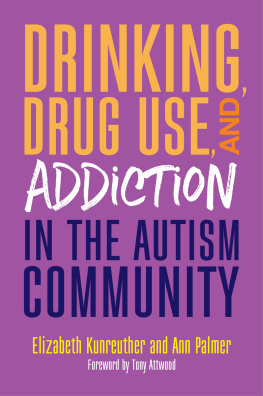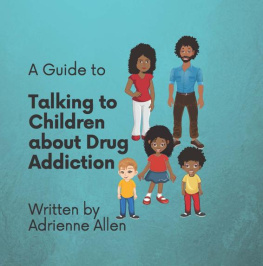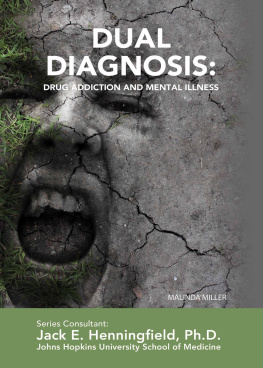
Chinese Stories of Drug Addiction
Addiction to illicit drugs is a pressing social concern across greater China, where there are likely several million drug addicts at present. This research breaks new ground by examining Chinese peoples stories of drug addiction.
Chinese Stories of Drug Addiction systematically evaluates how drug addiction is represented and constructed in a series of contemporary life stories and filmic stories from mainland China, Taiwan and Hong Kong. These stories recount experiences leading up to and during drug addiction, as well as experiences during drug rehabilitation and recovery. Through analysis of these contemporary life stories and filmic stories, the book presents a comprehensive picture of how Chinese people from both inside the experience of drug addiction and outside of it make sense of a social practice that is deemed to be highly transgressive in Chinese culture. It employs a blended discourse analytic and narrative analytic approach to show how salient cultural, political and institutional discourses shape these Chinese stories and experiences. Complementing existing humanities research, which documents the historical narrative of drug addiction in China at the expense of the contemporary narrative, the book also provides health and allied professionals with a rich insight into how Chinese people from different geographical locations and walks of life make sense of the experience of drug addiction.
Moving beyond historical narrative to examine contemporary stories, Chinese Stories of Drug Addiction offers a valuable contribution to the fields of Chinese studies and personal health and wellbeing, as well as being of practical use to health professionals.
Guy Ramsay is a senior lecturer in Chinese studies at The University of Queensland, Australia. In 2013, he published Mental Illness, Dementia and Family in China (Routledge).
Routledge/Asian Studies Association of Australia (ASAA) East Asia Series
Edited by Morris Low
Editorial Board: Professor Geremie Barm (Australian National University), Emeritus Professor Colin Mackerras (Griffith University), Professor Vera Mackie (University of Wollongong) and Professor Sonia Ryang (University of Iowa)
This series represents a showcase for the latest cutting-edge research in the field of East Asian studies, from both established scholars and rising academics. It will include studies from every part of the East Asian region (including China, Japan, North and South Korea and Taiwan) as well as comparative studies dealing with more than one country. Topics covered may be contemporary or historical, and relate to any of the humanities or social sciences. The series is an invaluable source of information and challenging perspectives for advanced students and researchers alike.
Routledge is pleased to invite proposals for new books in the series. In the first instance, any interested authors should contact:
Associate Professor Morris Low
School of History, Philosophy, Religion and Classics
University of Queensland
Brisbane, QLD 4072, Australia
Routledge/Asian Studies Association of Australia (ASAA) East Asia Series
| 1 | Gender in Japan
Power and public policy
Vera Mackie
|
| 2 | The Chaebol and Labour in Korea
The development of management strategy in Hyundai
Seung Ho Kwon and Michael ODonnell
|
| 3 | Rethinking Identity in Modern Japan
Nationalism as aesthetics
Yumiko Iida
|
| 4 | The Manchurian Crisis and Japanese Society, 193133
Sandra Wilson
|
| 5 | Koreas Development Under Park Chung Hee
Rapid industrialization, 19611979
Hyung-A Kim
|
| 6 | Japan and National Anthropology
A critique
Sonia Ryang
|
| 7 | Homoerotic Sensibilities in Late Imperial China
Wu Cuncun
|
| 8 | Postmodern, Feminist and Postcolonial Currents in Contemporary Japanese Culture
A reading of Murakami Haruki, Yoshimoto Banana, Yoshimoto Takaaki and Karatani Kjin
Murakami Fuminobu
|
| 9 | Japan on Display
Photography and the emperor
Morris Low
|
| 10 | Technology and the Culture of Progress in Meiji Japan
David G. Wittner
|
| 11 | Womens History and Local Community in Postwar Japan
Curtis Anderson Gayle
|
| 12 | Defending Rights in Contemporary China
Jonathan Benney
|
| 13 | Re-reading the Salaryman in Japan
Crafting masculinities
Romit Dasgupta
|
| 14 | Mental Illness, Dementia and Family in China
Guy Ramsay
|
| 15 | Japans New Left Movements
Legacies for civil society
Takemasa Ando
|
| 16 | Chinese Stories of Drug Addiction
Beyond the opium dens
Guy Ramsay |
First published 2016
by Routledge
2 Park Square, Milton Park, Abingdon, Oxon OX14 4RN
and by Routledge
711 Third Avenue, New York, NY 10017
Routledge is an imprint of the Taylor & Francis Group, an informa business
2016 Guy Ramsay
The right of Guy Ramsay to be identified as author of this work has been asserted by him in accordance with sections 77 and 78 of the Copyright, Designs and Patents Act 1988.
All rights reserved. No part of this book may be reprinted or reproduced or utilised in any form or by any electronic, mechanical, or other means, now known or hereafter invented, including photocopying and recording, or in any information storage or retrieval system, without permission in writing from the publishers.
Trademark notice: Product or corporate names may be trademarks or registered trademarks, and are used only for identification and explanation without intent to infringe.
British Library Cataloguing in Publication Data
A catalogue record for this book is available from the British Library
Library of Congress Cataloging-in-Publication Data
A catalog record for this book has been requested
ISBN: 978-1-138-94629-3 (hbk)
ISBN: 978-1-315-67090-4 (ebk)
Typeset in Times New Roman
by Apex CoVantage, LLC
This book is dedicated with love to Mum and Lily.
Contents
I wish to thank the following people and organisations for their kind assistance in the development and writing of this book: Rebecca Carter, Helen Creese, Daphne Hsieh, Wendy Jiang, Leong Ko, Yenney Lai, Yin Bing Leung, Haiyan Liang, Shirley Liu, Morris Low, Ying-hsiu Lu, Wai Wai Lui, John McNair, Karen Molnar, Alex Pan, Annie Pohlman, Rosie Roberts, Lara Vanderstaay, Yingxian Wang, Carol Wical, Shirley Wu; and the Centre for Critical and Cultural Studies at The University of Queensland, the University of Queensland Library, and the reviewers of the manuscript.
1
Introduction
Despite a global war against illicit drug use and trafficking, which has been carried out over many decades, drug addiction remains a pressing social concern in countries throughout the world. China is no exception. Drug addiction blighted twentieth-century Chinese society until it was virtually eliminated from mainland China in the early 1950s, following the Communist victory in 1949 (Diktter, Laamann & Zhou 2004; Liang & Lu 2013; Zheng 2005; Zhou 1999, 2000b). The phenomenon, however, re-emerged in mainland China alongside the program of reform and opening up [] that was initiated in 1978, following the death of Mao Zedong some two years earlier (Biddulph & Xie 2011; Diktter, Laamann & Zhou 2004; Liang & Lu 2013; Luo et al. 2014; Zheng 2005; Zhou 1999, 2000b). Drug addiction in the Chinese communities of nearby Taiwan and Hong Kong was an enduring concern during the Japanese and British colonial periods of the nineteenth and twentieth centuries, and persists to the present-day under local rule (Chou, Hung & Liao 2007; Chu 2008; Hsu 2014; Li 2013; Traver 1992).









